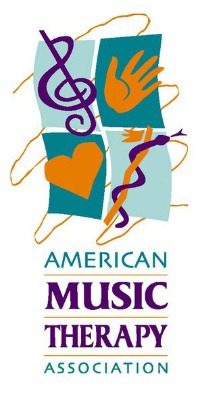
CMTE V: Applications of Evidence-based Data on Music and the Brain in Autism takes place on Thursday, November 21 – 1:30-6:30 pm and is presented by Dale B. Taylor, PhD, MT-BC & Elizabeth L. Stegemöller, PhD.
Register for this session here.
Elizabeth Stegemöller answers our questions…
What will you be sharing?
We will be sharing information on the neuroanatomy and neurophysiology of autism, as well as, applying neuroplasticity principles to the use of music in autism. We will also provide information on how music therapy benefits autism using the Biomedical Theory. The course will include hands-on experiences with brain models, interactive discussions, and personal applications of brain based data for clinical objectives.
Where will attendees be able to implement the information you share?
It is the goal of the course for attendees to be competent in explaining brain structures, functions, the use of music to stimulate neuroplasticity involved in autism, and how to apply this information to their clinical objectives. Attendees will be able to implement the information from their course in their clinical practice.
Tell us something that makes your CMTE unique or different.
We will be using hands-on brain models and interactive technology that will require the attendees to engage in questions and discussion throughout the course. We are also asking attendees to bring examples of their own clinical objectives they use when working with people with autism, so that by the end of the course they will be able to edit these objectives to include brain based data and share with the group.
Why is this topic of interest to you?
We think it is imperative that music therapists “Claim the brain as their domain”. As music therapists, changes that we induce are due to changes in the brain, yet practitioners in our field have too little awareness of this growing body of evidence showing why music works. Thus, educating music therapists about brain structure and the effects of music upon brain function is a passion for us so that as a profession we can move forward and better explain and better research the powerful changes that occur through music therapy.
Who should attend your class?
Entry level and experienced professionals who work with people with autism and want to learn about brain structure and function and to incorporated this knowledge into professional practice.
What kind of information will attendees be walking away with?
Brain Information! Attendees will have information about how the autistic person’s brain works differently in comparison to the normal brain and about how the use of music allows that person’s brain to function more effectively.
About the presenters:
- Dr. Dale Taylor is Professor Emeritus at the University of Wisconsin-Eau Claire, auther of “Biomedical Foundations of Music as Therapy” and travels world wide speaking on Music and the Brain.
- Dr. Elizabeth Stegemöller has her PhD in Neuroscience and is an assistant professor, Department of Kinesiology at Iowa State University. Her research interests are in the neurophysiology of music as therapy in populations with movement disorders.
CMTE V: Applications of Evidence-based Data on Music and the Brain in Autism takes place on Thursday, November 21 – 1:30-6:30 pm and is presented by Dale B. Taylor, PhD, MT-BC & Elizabeth L. Stegemöller, PhD.
Register for this session here.




